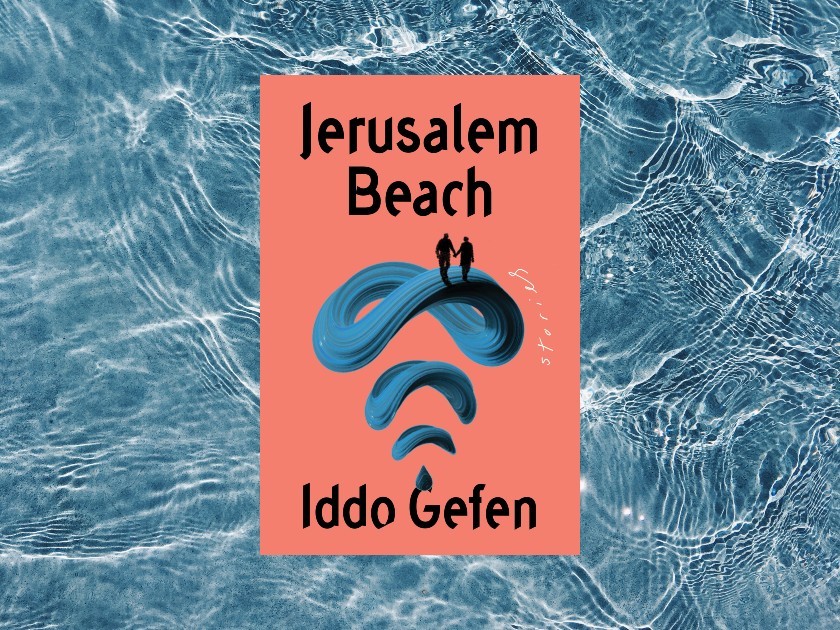
I discovered that there was a beach in Jerusalem a few months after my book was published in Hebrew. One day, as I was visiting my parents, I met my father’s childhood friend from Jerusalem, Yuval. He asked me why I named my debut short story collection Jerusalem Beach. I told him the name came from one of the stories about an elderly woman, named Lilian, who has Alzheimer’s. One of the only memories she has left is of visiting a snowy beach in Jerusalem as a child. Her husband, Sammy, knows this memory is probably a construct of her imagination, but decides to travel with her to look for the beach, in the hopes that will help the woman he loves. I explained that, like Lillian’s memory, I wanted the title to give readers a feeling of something familiar that does not really exist, just like a beach in Jerusalem. Yuval laughed. “That is a nice answer, but you got one thing wrong,” he said, “Lilian is right. There was definitely a beach in Jerusalem.”
This was a strange discovery that contradicted everything I knew about geography at that point in my twenties, as well as any map I had ever seen. Like every person in Israel, I knew that Jerusalem was a city in the mountains, far from the Mediterranean Sea; Yuval told me that when he was a child he visited Jerusalem beach several times. I was even more puzzled. How could one have memories from a place that did not exist? A place that until that moment, I was sure appeared only in a short story I wrote.
Yuval carefully explained. He told me that his father, Dr. David (Bibi) Neev, a well-known Israeli geologist, did a lot of field research inthe mountains of Jerusalem; sometimes he would take Yuval as a small child to the places he worked and show him the beach.
Like every person in Israel, I knew that Jerusalem was a city in the mountains, far from the Mediterranean Sea.
“But you just said he worked in the mountains,” I told him, confused. He just smiled.
“Today it is a mountain range, but geologists go back in time in their work, learning the history of the earth. And many millions of years ago there was a sea called Tethys Sea exactly where Jerusalem stands today. He liked to take me to see the fossils of marine creatures, evidence of the sea that once existed there.” Yuval also told me that when he showed the book to his father, who was in his nineties, he was very moved. It reminded him of his days as a young geologist, and he immediately said: “I am sure the author wrote this book especially for me.”
This story about Yuval’s father taught me two important lessons. First, that apparently basic geology can be crucial knowledge when you choose a book title. But second and more important, that the difference between fiction and reality is often much more blurred than it seems. A place I was sure I had created in my imagination had, in fact, existed many years before in the memories of others.
The great English writer Virginia Woolf wrote that “writing is the profound pleasure and being read the superficial.” I admire Woolf. She is one of the greatest writers I have read, but on this specific issue I tend to disagree. For me, as a reader and a writer, literature is a dialogue not a monologue. Many of my favorite books are the ones that made me feel for a moment that someone else was able to articulate a deep feeling that I had but did not know how to express in words. From my experience as a reader, I truly believe that books are not written and then passively read by their readers, but rather created together with them. The encounter between the reader’s eyes and the text is the final and most integral part of the creative process, and without it, the book would be incomplete.
There was a time when I frequently asked myself what place books have in the twenty-first century, in a world where one can watch thousands of shows on Netflix and be exposed to endless content on social media. But after what happened with Yuval’s father, I realized that while the most advanced camera cannot enter another person’s consciousness, books can do just that; it is because they are incomplete without the imagination of their readers. And just as the old geologist taught me that there was another layer of meaning to my story, every meeting between a book and a reader recreates the story in a different way, again and again.
Iddo Gefen was born in 1992 in Tel Aviv and is currently based in NYC. He is an author and a PhD student in cognitive psychology at Columbia University and the Zuckerman Institute for Neuroscience, researching the relationship between narrative understanding, human memory, and decision-making. His first book, Jerusalem Beach, was the recipient of the 2023 Sami Rohr Prize for Jewish Literature.